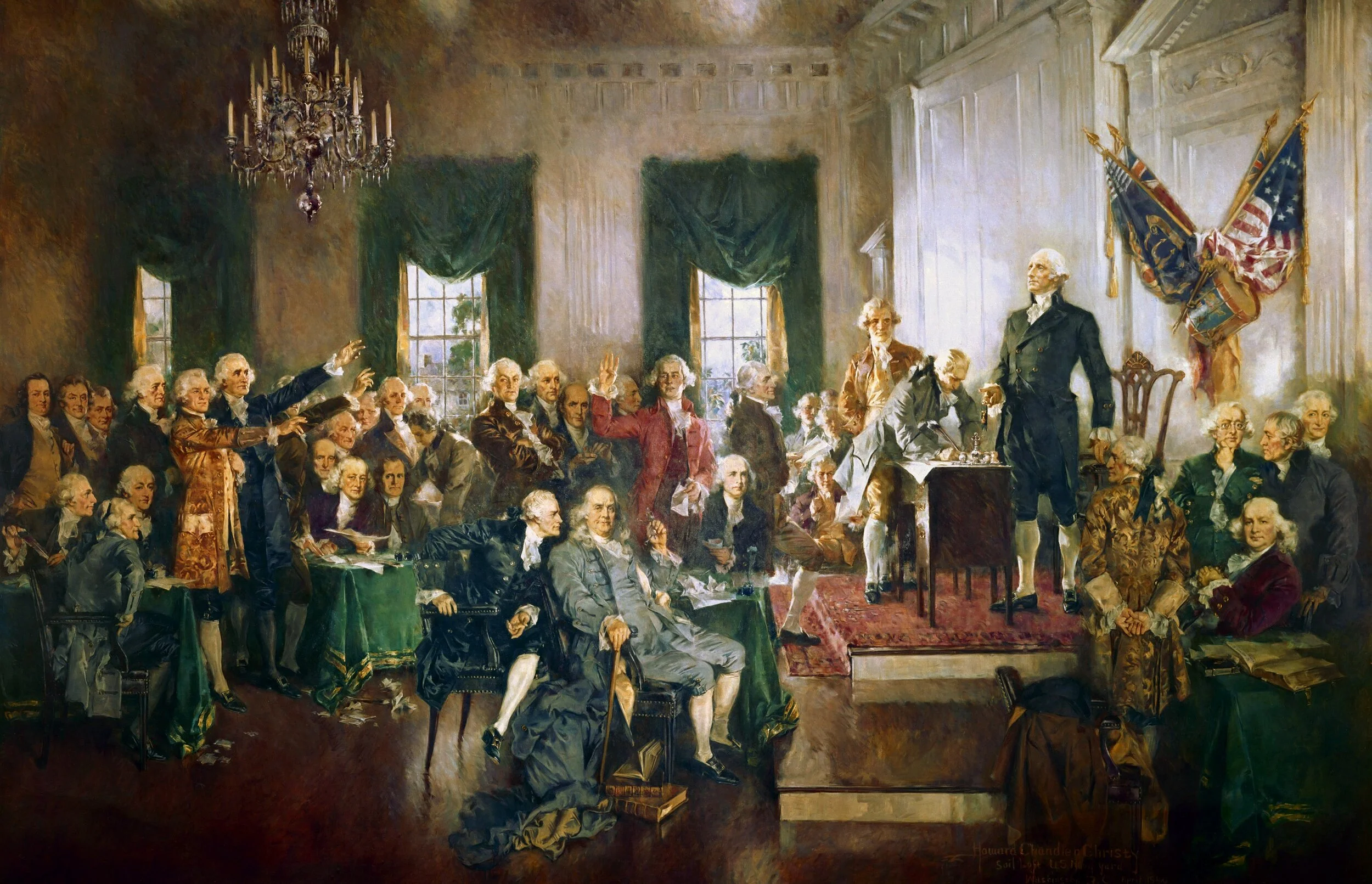Republic v. Democracy
/The words “republic” and “democracy” have been clearly defined in many places and by many people. There should not be any doubt or confusion about them. But there is. Today I came across a writer who appears to think that Republicans want a republic and Democrats want a democracy, and that the two things are in opposition to one another. That’s wrong.
So, there’s more work to do.
To begin with “republic” and “democracy” do not describe the policy preferences of the two major American political parties. Both parties want the same thing, which is for them to hold as many elected offices as possible so they can accumulate power to themselves. The two parties are in stark opposition to each other in that respect. But they don’t disagree on these words.
Next, “republic” and “democracy” are not opposites. No more so than “North” is the opposite of “wet.” North and wet are dissimilar but they are not opposites. Rather, they refer to separate concepts. North is a compass direction. Wet refers to moisture. In the same way, “republic” and “democracy” refer to separate concepts.
What “republic” signifies is a broad category of governmental systems in which power is controlled by . . . .someone other than a heredity monarch. Most of the countries in the world are republics, including some very successful states and some failed ones as well. North Korea and Iran are republics. You can check the form of government for any country on this list or on this one.
“Republic” doesn’t mean much at all apart from signaling that power is conferred somehow other than by birthright. To the founders this was important, because they were cutting ties with England’s hereditary king and setting up something different. Today, declaring that the US is a republic in no distinction at all.
“Democracy” is a little trickier to understand because the word has two meanings. Sometimes “democracy” is construed to mean a type of society where citizens directly manage governmental affairs themselves. That was the way in ancient Athens, where women and slaves did all the work and the whole duty of the (male) citizens was attending to government.
Democracy is an important and essential concept for America, but it has never meant the Greek sort of direct democracy. Even at the outset of life under the Constitution, when voting was limited to white men with property, the American system presumed that most citizens would stand back and allow their elected representatives to decide and implement the laws.
The ancient type of democracy was never intended for America. We all know that. But the modern meaning of the word is still very necessary. That modern meaning of the word is, “of the people.” A democratic government is one that works for the good of the people.
Many governments in history denied any intention of serving the common people. French King Louis XIV, for example, declared “L’etat, c’est moi!” meaning “I am the nation!” Louis meant that the aim of France as a nation was to bring glory and power to himself. Compared to that, a nation that chooses democracy is likely to give ordinary people a better deal than a country that despises the label of “democracy.”
It should be clear now that republic and democracy are not in opposition. it is possible to imagine a country that is both, that is neither and that is one but not the other. King Louis’s France was neither. It was not a republic and it was not a democracy. Modern North Korea is, as I said earlier, a republic, but it is not a democracy because it starves its people to maintain the ruling regime in power.
Many countries in the world today are both republic and democratic. Germany, Japan, Canada, Australia, and many others choose their leaders by voting. Their governments, once elected, recognize the obligation to maintain policies that keep the citizens healthy, reasonably affluent, protected from harm, and satisfied.
The best possible government would chose the best available leaders, and would not cede office to the next family member in line from a rich or prominent family just because of their name. America’s two-party electoral system leaves much to be desired but it is clearly better than monarchy. America is a republic.
The best possible government would also be one that served the best interests of the citizens. It would not drive the people to work and sacrifice for the benefit of a king or a corporation or any other special interest. It would create a system where the benefits of the people’s work and efforts and sacrifices would go — as much as possible — back to the people themselves.
America, at its best, is both a republic (in form) and a democracy (in emphasis and priority). Those are both good things. Let’s stop pitting two great concepts against each other in an either/or battle. And let’s stop associating the words with the political parties.
The Online Etymology Dictionary shows
from Latin respublica (ablative republica) "the common weal, a commonwealth, state, republic," literally res publica "public interest, the state," from res "affair, matter, thing" (see re) + publica, fem. of publicus "public"
from Greek dēmokratia "popular government," from dēmos "common people," originally "district" (see demotic), + kratos "rule, strength" (see -cracy).










